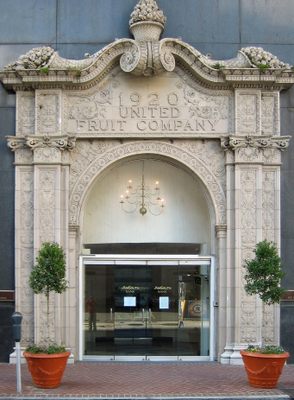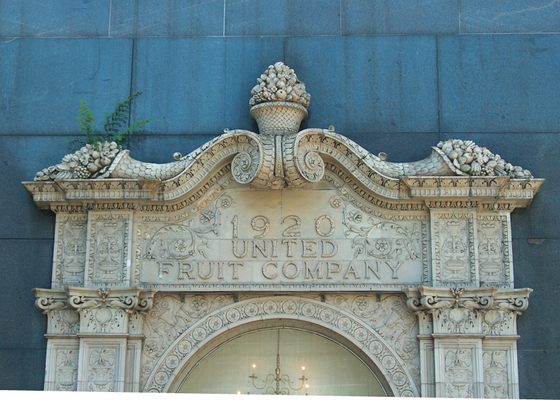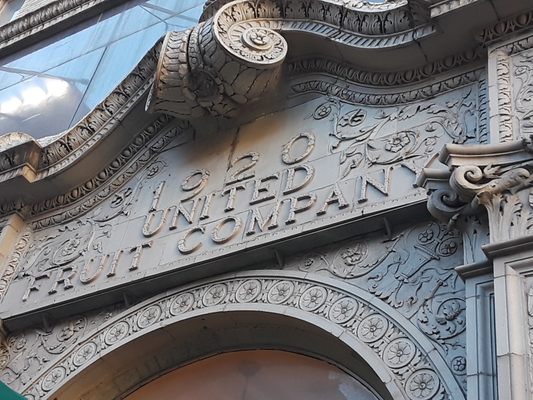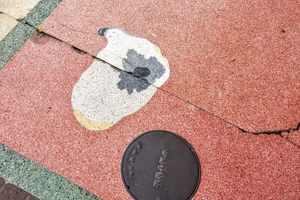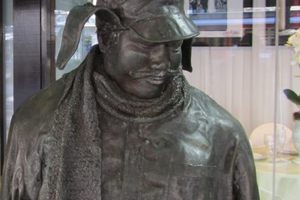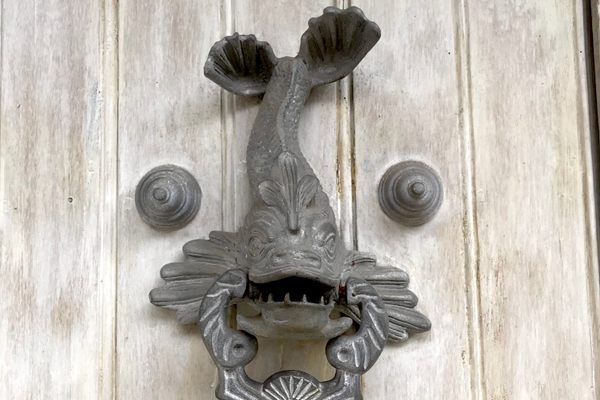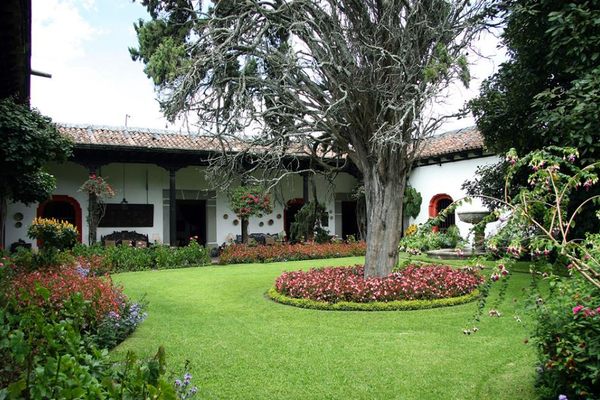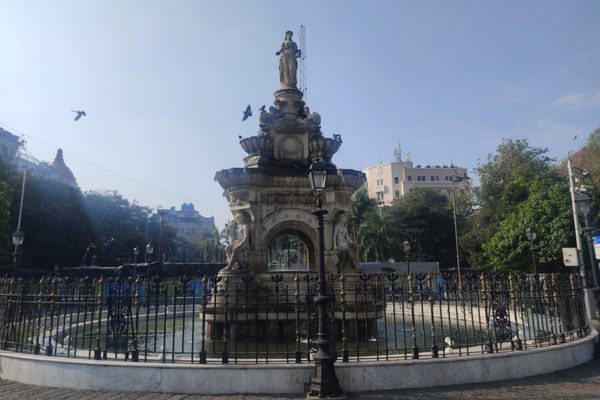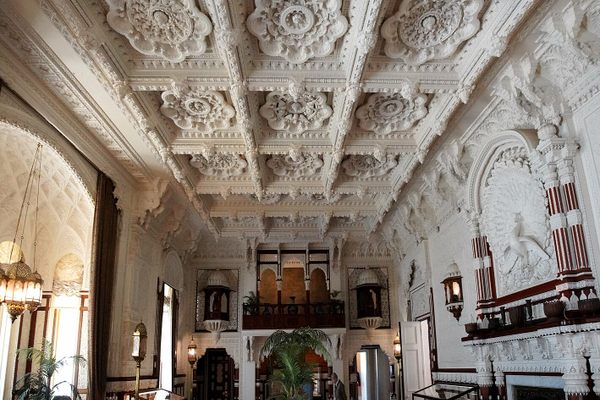About
Most bank branch offices are drab, but if you use Fidelity Homestead Bank in New Orleans, every deposit is a step back into a rather unpleasant piece of the past. The fruit-themed building was once the headquarters of a company with a history seeded in damaging neocolonial practices.
The United Fruit Company used this building as their offices starting in 1920. From here, they dominated the fruit trade with the help of local businessman Sam "BananaMan" Zemurray. The company's monopoly over the fruit industry had disastrous, long-lasting effects on many of the Latin American countries it did business in.
The United Fruit Company used its power to establish “banana republics” within Central and South America. Poor labor conditions, coupled with a lack of oversight from corrupt governments, led to disadvantaged local populations and environmental ruin. Journalists took to calling United Fruit "el pulpo" ("the octopus") because its tentacles were everywhere. The company was linked to Colombia’s banana massacre of 1928, which killed thousands of people.
After its chairman died by suicide amid a bribery scandal, the company was succeeded by Chiquita, which moved its headquarters elsewhere. In the old headquarters, the original chandeliers and fruit-themed friezes still dominate the exterior and lobby. It’s a grand place to negotiate a loan, despite the building’s dark roots.
Related Tags
Know Before You Go
It's directly on the St. Charles Avenue streetcar, three blocks from Canal Street, near many hotels and businesses. The bank lobby is open for normal business hours, 9 to 5, Monday to Friday. Try Luke cafe nearby for lunch.
Community Contributors
Added By
Edited By
Published
February 21, 2018
